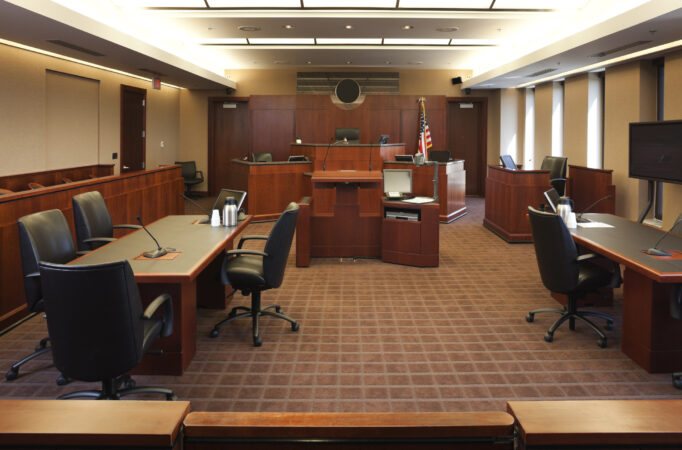Litigation: Latest Legal Blogs and News
COVID-19 And Cruise Lines - Lawsuits For Negligent Exposures To COVID-19
One of the first heavily covered COVID-19 stories in the United States is now spawning some of the first negligence-based lawsuits resulting from alleged exposures to the virus. Carnival Corporation and Carnival PLC, through one of their operating lines, Princess Cruise Lines, LTD (“Carnival”), have been sued by previous passengers in roughly a dozen lawsuits, alleging that Carnival negligently allowed and/or caused said passengers to be exposed to the virus. This blog discusses two of the most recent lawsuits, referred to herein as the Wong Lawsuit and the Class Action Lawsuit. Both lawsuits were filed in the United States District Court Central District of California, with the Wong Lawsuit being filed on May 27, 2020, and the Class Action Lawsuit being filed on June 2, 2020.
The facts that gave rise to these lawsuits were widely publicized in March of 2020. By way of a brief recap, Carnival was operating its well-known cruise ship line amidst the beginnings of the COVID-19 epidemic in the United States. One of Carnival’s ships, the Grand Princess, embarked on a roundtrip voyage from San Francisco to Mexico on February 11, 2020. The amended complaint of the Class Action Lawsuit alleges that Carnival first became aware that the Grand Princess was transporting a passenger who was positive for COVID-19 on February 19, 2020. On February 21, 2020, the Grand Princess completed its Mexico voyage and returned to port in San Francisco. That same day, the Grand Princess embarked on another roundtrip voyage from San Francisco to Hawaii, with approximately sixty-two passengers and 1,000 crew members from the Mexico voyage remaining onboard. On March 9, 2020, the Grand Princess completed its Hawaii voyage and returned to port in San Francisco. On March 10, 2020, the passengers were permitted to vacate the ship, at which point they were transported to military bases for quarantine.
Both the Wong Lawsuit and the Class action Lawsuit are filed on behalf of individuals who sailed on the Grand Princess during the Hawaii voyage. The Plaintiffs in the Wong Lawsuit are Eva Yuk Wah Ma Wong in her own right, having allegedly contracted COVID-19 during the Hawaii trip, and as a representative of the estate of her late husband, Ronald Wong, who allegedly died as a result of his contraction of COVID-19 during the Hawaii voyage. The complaint asserts one count of negligence and a second count of negligence as a survivorship action against Carnival. The complaint alleges that Carnival is a common carrier, thus requiring a heightened standard of care to be owed to its passengers. The duties associated with this heightened standard were allegedly breached by Carnival when it boarded the Wongs onto “the deathly cruise ship armed with COVID-19” without providing any notice, warning, precautionary medical supplies (masks), or safety precautions (social distancing). Further breaches allegedly included Carnival’s failure to impose quarantine during the Mexico voyage, implement COVID-19 testing or screening for the passengers and crew who remained on the Grand Princess from the Mexico voyage, and disinfect and decontaminate the Grand Princess prior to boarding for the Hawaii voyage.
As for the Class Action Lawsuit, the amended complaint was brought on behalf of approximately 60 named plaintiffs and a potential class including any passenger who took part in the Grand Princess’ Hawaii voyage. Only two of the named plaintiffs are alleged to have been actually infected with COVID-19, with the remainder suffering risk of immediate physical injury and emotional distress. The amended complaint asserts one count of negligence, a second count of gross negligence, and a third count of negligent infliction of emotional distress against Carnival. The negligence and gross negligence counts define Carnival’s duty to the plaintiffs and potential class as a duty to ensure that Carnival’s passengers would not be exposed to an unreasonable risk of harm, as well as to prevent and mitigate the risk of threats to its passengers’ health and safety, which included ensuring that the Grand Princess was properly cleaned, disinfected, and safely maintained. During the Hawaii voyage, it is alleged that Carnival had knowledge of the extreme danger that COVID-19 posed due to worldwide news coverage of the same, cruise line protocols enacted as a result, as well as prior outbreaks of COVID-19 on other Carnival cruise ships. As a result, Carnival allegedly breached its various duties to the named plaintiffs and potential class by: choosing to disembark on the Hawaii voyage under the circumstances; choosing not to screen or medically examine any passengers or crew that remained on the Grand Princess from the Mexico voyage; choosing not to notify the named plaintiffs or potential class of the Grand Princess’ likely infestation of COVID-19, or the risks associated with contraction of COVID-19; repeatedly not informing the named plaintiffs or potential class that passengers from the Mexico voyage had been diagnosed with COVID-19, or that certain passengers and crew from the Mexico voyage remained onboard during the Hawaii voyage; not implementing any quarantine or social distancing protocols during the Hawaii voyage. Although these lawsuits are occurring in the context of the cruise ship industry, which provides unique circumstances, the outcomes of these lawsuits will, nonetheless, provide a glimpse at what the disposition of other negligence-based lawsuits in this country surrounding COVID-19 will look like. This is because the duties allegedly breached by Carnival could be applicable in a myriad of situations and relationships. For example, what types of duties could be determined breached between a commercial lessor and its business tenants, or a commercial lessor and its business tenants’ employees, when these employees are allegedly exposed to COVID-19 in the workplace? What types of duties could be determined breached when the passenger of a taxi service is allegedly exposed to COVID-19 while utilizing the taxi? What about a homeowner or renter who hosts a social gathering, which results in a guest allegedly being exposed to COVID-19? Certainly, these types of scenarios, as well as countless others, occurred leading up to and during the COVID-19 pandemic, thus presenting the possibility of countless negligence-based lawsuits in the new reality created by this virus. Houston Harbaugh will continue to monitor these lawsuits as they develop.
About Us
The litigation attorneys at Houston Harbaugh, P.C., are accomplished business trial lawyers, providing comprehensive support in litigation across a broad spectrum of matters throughout Pennsylvania, West Virginia, Ohio and other jurisdictions upon a special admission basis. Our clients are regional and national small, medium and large companies and individuals who seek well planned and aggressive, but cost effective litigation. We counsel, we budget, we have a deep bench, we act quickly when needed and we have experienced trial lawyers who know the courts and bench. We serve regularly as local counsel for some of the largest law firms in the country when they have matters in this region.

Henry M. Sneath - Practice Chair
Co-Chair of Houston Harbaugh’s Litigation Practice, and Chair of its Intellectual Property Practice, Henry Sneath is a trial attorney, mediator, arbitrator and Federal Court Approved Mediation Neutral and Special Master with 98 trial verdicts and extensive federal and state court trial experience in cases involving commercial disputes, breach of contract litigation, Artificial Intelligence (AI), intellectual property matters, patent, trademark and copyright infringement, trade secret misappropriation, DTSA claims, cyber security and data breach prevention, mitigation and litigation, employment and restrictive covenant litigation, probate trusts and estates litigation, construction claims, eminent domain, professional negligence lawsuits, pharmaceutical, products liability and catastrophic injury litigation, insurance coverage, and insurance bad faith claims. DTSALaw® Business Litigation. Pittsburgh Strong.®

Samuel H. Simon - Practice Chair
As co-chair of Houston Harbaugh’s Litigation Group, Sam focuses his practice on commercial/business litigation. Sam regularly represents clients in the construction, manufacturing, oil and gas, and wholesale/retail/ distribution industries, as well as individuals in matters such as:
- Construction litigation
- Environmental litigation
- Breach of contract disputes
- Oil and gas litigation
- Negligence
- Restrictive covenants (non-compete agreements)
- Civil rights
- Collections/creditors’ rights
- Lease disputes

